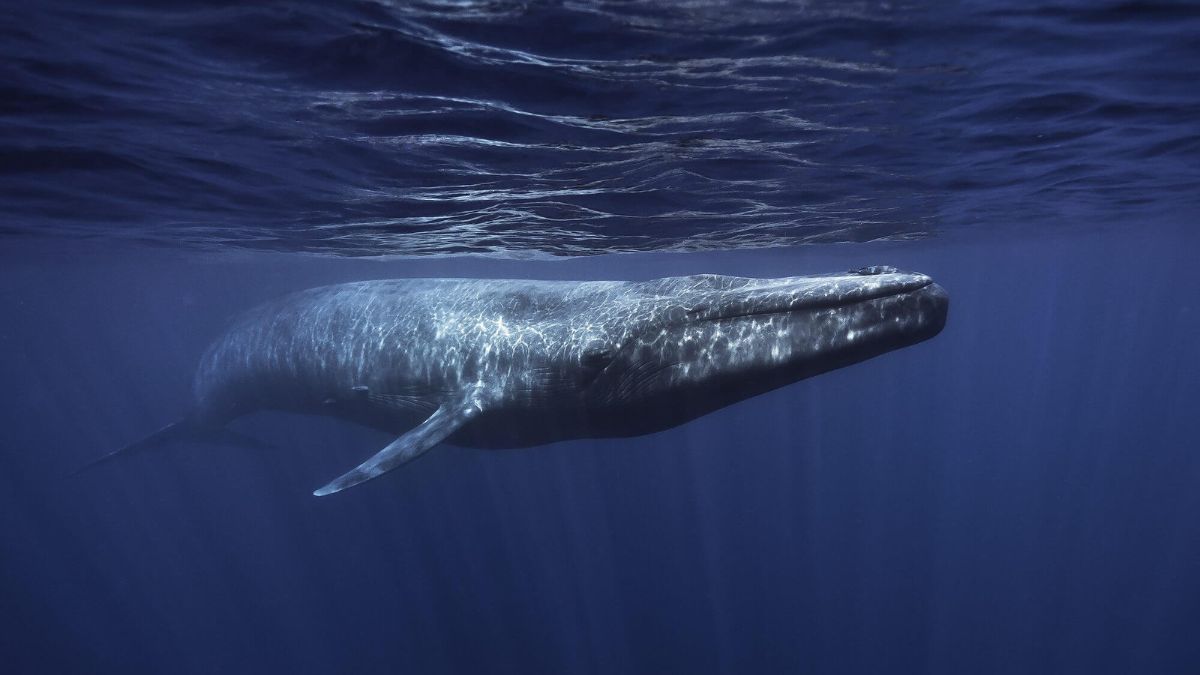Deep below the surface of the Pacific Ocean, a quiet crisis is unfolding. At first, it’s easy to miss. But listen closely, and the clues are everywhere. Whales, once filling the seas with long, echoing calls, are beginning to go quiet. And scientists now believe that their silence is a signal, one that warns of a rapidly changing ocean.
Off the coast of California, a thin, two-inch-wide metal cylinder sits at the end of a 32-mile-long cable on the seafloor. This small device, called a hydrophone, is an underwater microphone. It listens to the ocean around the clock. It captures the rumble of waves, the clicks of shrimp, the groans of shifting earth, and the songs of whales. These sounds help researchers understand the hidden rhythms of marine life. They also reveal when something is out of balance.
Scientists like John Ryan and Jarrod Santora are using this technology to track the impacts of climate change on ocean life. What they’ve heard in recent years is deeply concerning. In a six-year study that began in 2015, Ryan and his team captured sound patterns in the California Current, one of the richest marine ecosystems in the world. Their recordings started just as a powerful marine heatwave arrived.
This heatwave, later named “The Blob,” began in 2013 and stretched from Alaska to Mexico by 2016. Ocean temperatures soared more than four degrees Fahrenheit above normal in some areas. The heat disrupted the ocean’s chemistry and triggered one of the worst toxic algae blooms ever recorded. Krill, the tiny crustaceans that whales depend on for food, suddenly became scarce.
As the krill vanished, so did the whales’ voices. Blue whale calls dropped by nearly 40 per cent. Fin whales followed a similar pattern. Only humpbacks kept singing at normal levels, likely because they have a more flexible diet and could adapt. But for blue and fin whales, the impact was clear. Without krill, there was little reason to sing. They were spending all their time and energy just trying to eat.
“It’s like trying to sing while you’re starving,” said Ryan.
And the pattern didn’t stop there. Thousands of miles away, in the waters between New Zealand’s islands, scientists found the same thing. During the same years of heat, blue whale feeding calls dropped in spring and summer. Later that year, mating songs also fell. The whales were not just hungry, they were too exhausted to reproduce.
These changes go far beyond one species. Krill support nearly everything in the ocean food chain, from small fish to giant whales. When krill disappear, the effects ripple outward. Scientists say this is one of the clearest examples of how marine heatwaves can reshape entire ecosystems.
And these heatwaves are no longer rare. A recent study shows they are now three times longer and one degree Celsius hotter than they were in the 1940s. Some places are seeing spikes up to five degrees hotter. These changes are tied to rising greenhouse gas emissions and are expected to get worse in the future.
The silence of whales is not just sad. It is a warning. Whales live long lives, many up to eighty years, and travel across huge parts of the ocean. When they begin to disappear or change behaviour, it means something big is happening below the surface.
Scientists now believe whale sounds could become one of the most important ways to track the health of the ocean. By recording and analysing these calls, they can detect food shortages, stress, and even toxic conditions. During the COVID-19 lockdowns, when shipping and human activity slowed down, ocean life responded quickly. Without constant human noise, animals returned to areas they had left. They used new spaces. They began to behave differently. This showed just how deeply our presence reaches into the sea.
Still, much more data is needed. Researchers need time and tools to understand the many links between sound, species, and the environment. A single hydrophone can record years of information, helping create a clearer picture of what is happening below the waves.
The stakes are high. If long-lived animals like whales are already showing signs of stress, the problems may last for decades. Some scientists fear we are nearing a tipping point. If conditions continue to worsen, the ocean might never return to its past state. The food we eat, the air we breathe, and the balance of life on Earth are all connected to the sea.
That’s why researchers say now is the time to listen. Whale songs are more than just beautiful echoes in the deep. They are messages from a changing world. And if we stop to hear them, they might help us save what’s left.


